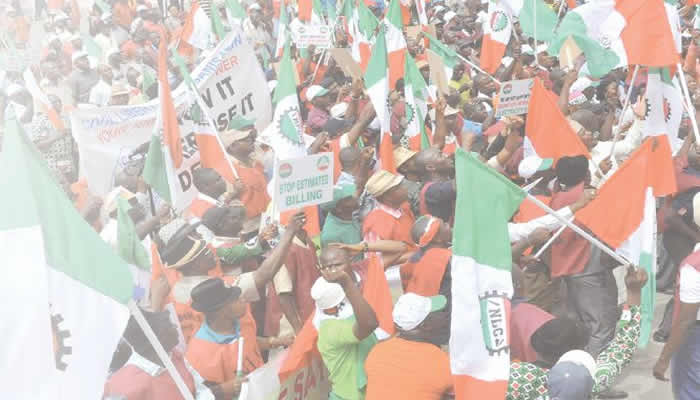
The Nigeria Labour Congress (NLC) has strongly criticized the recent increase in the price of Premium Motor Spirit (PMS), commonly known as petrol, describing it as a display of insensitivity towards the masses. Senior NLC officials voiced their concerns on Sunday, following reports that oil marketers have refuted accusations of being responsible for the hike.
On Friday, petrol prices surged to between N1,050 and N1,150 per litre, driven by a rise in the cost of crude oil and subsequent adjustments by Dangote Petroleum Refinery and other depot owners. Fuel dealers have indicated that further increases are likely, as crude oil prices continue to rise globally.
NLC Calls for Stakeholder Consultation
Prof. Theophilus Ndubuaku, Deputy President of the NLC’s Political Commission, emphasized that in a more sensible environment, discussions about such price hikes would involve representatives from workers, the private sector, and student organizations. He argued that such decisions should be made collaboratively, taking into account the impact on the masses, especially given the ongoing inflation and declining value of the naira.
“Such decisions should not be taken without consulting the people affected,” Ndubuaku said, criticizing the government’s lack of transparency and inclusivity. He compared the current approach to a phenomenon he termed “Tinubunomics,” stating that the administration is prioritizing untested economic strategies while neglecting workers’ welfare.
Ndubuaku suggested that President Bola Tinubu should adopt a more inclusive approach, akin to former President Olusegun Obasanjo’s practice of holding monthly roundtable discussions with stakeholders on sensitive issues.
Lagos NLC Chair Accuses Marketers of Manipulation
Sessi Funmi, Chairperson of the NLC in Lagos State, echoed similar sentiments, accusing oil marketers of exacerbating Nigeria’s economic woes. She described marketers as “enemies of the masses,” alleging they manipulate fuel prices for profit while undermining the government’s efforts to stabilize the oil sector.
Funmi rejected the argument that rising crude oil prices necessitate higher petrol prices, pointing out that marketers do not purchase crude oil directly but rather the finished product. She praised the government’s efforts to revive Nigeria’s refineries in Port Harcourt and Warri, stressing that these initiatives should lead to lower petrol prices, not higher.
The NLC chair called for greater transparency and accountability from marketers, urging the government to bypass intermediaries in favor of direct agreements with oil companies and retail stations to ensure fair pricing.
Dangote Refinery Defends Pricing Strategy
Dangote Petroleum Refinery has responded to criticisms by clarifying that the recent petrol price increase is linked to a surge in global crude oil prices. The refinery stated that its ex-depot price has risen by only 5%, from N899.50 to N950 per litre, significantly lower than the 15% rise in global crude prices.
In a statement, Anthony Chiejina, spokesman for the Dangote Group, explained that the refinery absorbed the increase in logistics costs to ensure uniform pricing across Nigeria. The company’s partners, including MRS, Ardova, and Heyden, are selling petrol at N970 per litre nationwide.
Chiejina assured the public that Dangote Refinery is committed to providing affordable and high-quality fuel, absorbing a portion of the price increase to shield Nigerian consumers from the full impact of global oil price fluctuations.
Petroleum Marketers Deflect Blame
Petroleum marketers have also weighed in, denying responsibility for the recent price hike. They attributed the price fluctuations to international factors, particularly the rise in global crude oil prices and exchange rate volatility. The recent hike, they explained, is a direct consequence of these external factors, which have led to instability in the prices of petroleum products.
Dr. Billy Gillis-Harry, National President of the Petroleum Products Retail Outlets Owners Association of Nigeria (PETROAN), reiterated that petrol prices are now determined by market forces, following the full deregulation of the sector. He clarified that retailers cannot be blamed for the increases, as they are simply responding to higher buying prices.
Gillis-Harry highlighted the impact of the rising cost of crude oil, noting that the fluctuations are inevitable given the volatility of international markets. He also warned that filling station owners must carefully plan their operations to avoid losses, especially in the face of market instability.
In conclusion, while oil marketers and refineries maintain that the price hikes are driven by global factors, labour unions and other stakeholders continue to demand more transparency and involvement in decision-making processes, calling for fairer pricing that prioritizes the welfare of Nigerian citizens.
Comments